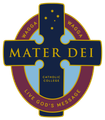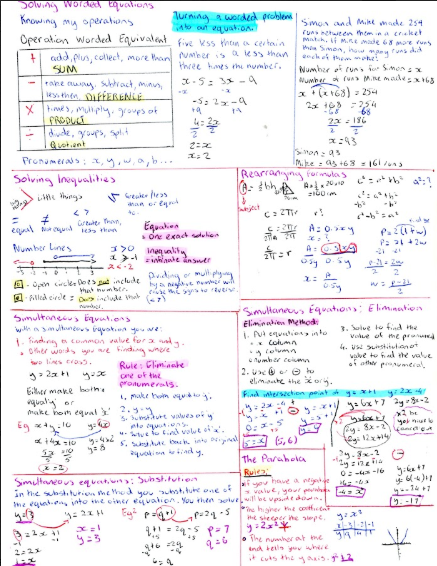Mathematics

Goals are part of every aspect of life and provide a sense of direction, motivation, a clear focus, and clarify importance. By setting goals, you are providing yourself with a target to aim for. A SMART goal is used to help guide goal setting. SMART is an acronym that stands for Specific, Measurable, Achievable, Realistic, and Timely. Therefore, a SMART goal incorporates all of these criteria to help focus your efforts and increase the chances of achieving that goal.
The students of Mater Dei Catholic College have provided us with the feedback that they would like some assistance with putting in place some structures that will allow them to be more reflective on where they are with their educational journey, in addition with greater accountability and support. From these discussions, the Mathematics KLA have introduced Stage 6 Goal Setting. We are using the SMART goal principle to assist the students with setting parameters for these goals.
SMART goals are:
Specific: Well defined, clear, and unambiguous
Measurable: With specific criteria that measure your progress towards the accomplishment of the goal
Achievable: Attainable and not impossible to achieve
Realistic: Within reach, realistic, and relevant to you
Timely: With a clearly defined timeline, including a starting date and a target date.
The details of the Stage 6 Goal setting are:
- Every student in Stage 6 who studies a Mathematics course will participate
- The goal is to be set in consultation with the class teacher
- Students will receive feedback from the teacher on their progress at least every 5 weeks
- Parents can access their child’s goal/s using Canvas.
It is hoped that by providing the opportunity for all students to take ownership over their learning that they will become the drivers of their own education. The Stage 6 Goal Setting should help to push the students further, give them a sense of direction, support students to organise themselves and reach their goals.
MAKING THE MOST OF YOUR LEARNING LOGS
Were you aware that a person is seven times more likely to remember something they have written down compared with just reading it? Research on effective methods of study have shown the importance of writing down information that you are trying to learn, as opposed to just reading it. At Mater Dei Catholic College, we understand the importance of creating structures that allow our students the best opportunities to learn. As such, all students from Year 7 to Year 10 complete what is known as a Learning Log.
A learning Log is a summation of all the important information studied during a topic. This may include, but is not limited to; definitions, formulas, worked examples and key information. The purpose of the Learning Logs are to allow the students the opportunity to revisit content they have learnt. The task makes up 20% of each student in Year 7 to 10 students' assessable items, however, that is not the most important part.
LEARNING LOG FOR FINANCIAL MATHEMATICS
~Click on Image to enlarge~
LEARNING LOG FOR SOLVING EQUATIONS
~Click on Image to enlarge~
The quality of the Learning Logs that are presented for grading are typically high, demonstrating that students are spending a substantial amount of time in the preparation of them. To gain the full benefit from all their hard work, students need to be using the Learning Logs for their intended purpose, that being, a revision tool. Some of the ways in which students can gain additional benefit from their Learning Logs is to,
Make it part of your regular revision schedule
Each day you have Mathematics, use the Learning Log as a journal, by summarising the important points you learnt that lesson
Involve family members, by asking them to quiz you on the information.
The most important message to take away' is the value students place in just using it. It can be so much more than just an assessment task, and can be a tool that starts a student's journey of increased potential as they learn to more effectively use learning/revision time in ways which will significantly support them.
Mr Kurt McPherson | Mathematics KLA Leader


